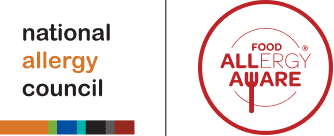Information for camp providers
Food allergies are common, and any food can cause a severe allergic reaction (anaphylaxis). It is important that all food allergies are taken seriously by camp providers.
There are a range of things that camp providers can do to prepare for and manage food allergies and anaphylaxis.
Managing risk in camp food service
Clearly identify individuals with food allergies. This way, food service staff will know the number and type of food allergies that need to be catered for.
It is recommended that camps have at least one general use adrenaline device included in the first aid kit with an ASCIA First Aid Plan for Anaphylaxis.
All staff should complete the ASCIA anaphylaxis e-training.
Staff preparing and serving food should do the All about Allergens for Camps online training.
It is not appropriate to ask campers to sign waivers or disclaimers about the risk of accidental exposure to an allergen. With good allergen management procedures, camps can cater for people with food allergies.
If a food has a precautionary allergen labelling (PAL) statement for a food allergen, you must not serve the food to a camper who is allergic to that food. For example, a product labelled “may contain traces of nuts” should not be given to someone with a peanut or tree nut allergy.
Precautionary allergen labelling statements such as "may contain" are used to explain that a food may have been unintentionally contaminated with an allergen during any stage of making that food. This can happen during the growing, storing, making or transporting of the food. This can make the food a risk to the person with food allergy.
Managing food allergies
The contact details of the camp food service provider should be given to campers. For children these details should be given to their parents or carers.
The camp food service provider should check directly with adult campers with food allergy or parents of children with food allergy to make sure that they have the right information about the camper's food allergies.
The camp coordinator should provide the camp food service provider with:
The names of all people attending the camp.
The names of all people attending the camp with food allergies and the foods that they are allergic to.
A copy of individuals’ ASCIA Action Plans, if requested (after obtaining consent).
The camp coordinator should check that all food allergies can be catered for.
If meals or snacks are provided from home:
They should be clearly labeled with the camper’s name and their allergies.
They should be stored in a way that they cannot be contaminated with other foods. For example, in a sealed labelled container or on the top shelf of a fridge.
Meals, snacks or drinks purchased during camp:
If snacks or drinks are purchased during camp, make sure they are suitable for the individual’s food allergies.
It is important to read food labels to check if the camper’s food allergens are an ingredient of the food.
Also check if there are any precautionary allergen labelling statements (“may contain”) for the allergen – if there are, the food is not suitable for the person with an allergy to that food.
When the campers arrive:
Ask supervising staff to report to the camp food service provider to allow the food service team to check all food allergy (and other dietary) information.
Depending on the type of camp, you may need the adult camper themselves to report to the camp food service provider to discuss their allergies.
During camp:
Provide meals that are appropriate for people with food allergies. Food provided to people with food allergies should not contain the food they are allergic to and they should not be given foods that have a precautionary allergen labelling statement ('may contain' or 'may be present') for the food they are allergic to.
Remind campers not to share food with others while on camp.
Do not use foods for rewards for camp activities or use foods as part of camp activities.
Make sure the tables and chairs in the dining hall are clean. After each meal, tables should be cleaned and chairs should be checked and cleaned if needed.
Encourage campers to wash their hands before and after eating.
Do not ask people with food allergies to help with cleaning that involves handling food (such as cleaning dishes). Ask them to help with other cleaning activities (such as sweeping floors).
After camp, dispose of any ASCIA Action Plans left at a campsite in a confidential manner.
Useful links
The Allergy Aware website provides Best Practice Guidelines for anaphylaxis prevention and management in schools and other useful resources such as risk minimisation strategies.
All about Allergens for Camps free food allergen management training for camp food service providers.
All about Allergens best practice food allergen management resources for camps to implement in your camp food service.
Allergy & Anaphylaxis Australia’s Preparing for Camp with Food Allergies e-book.
Allergy & Anaphylaxis Australia’s Camp Allergy Management Checklist.
